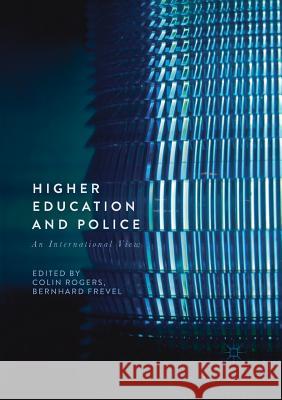Higher Education and Police: An International View » książka
topmenu
Higher Education and Police: An International View
ISBN-13: 9783319877877 / Angielski / Miękka / 2019 / 274 str.
Kategorie:
Kategorie BISAC:
Wydawca:
Palgrave MacMillan
Język:
Angielski
ISBN-13:
9783319877877
Rok wydania:
2019
Wydanie:
Softcover Repri
Ilość stron:
274
Waga:
0.36 kg
Wymiary:
21.01 x 14.81 x 1.6
Oprawa:
Miękka
Wolumenów:
01
Dodatkowe informacje:
Wydanie ilustrowane











